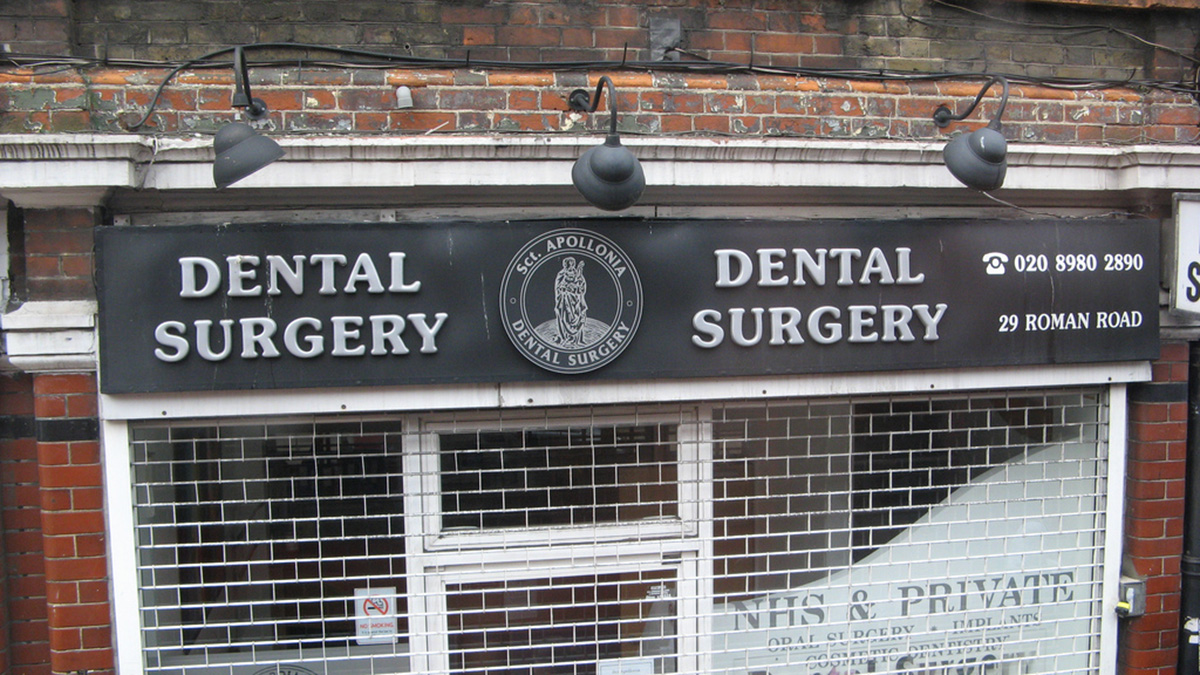Periodontitis — the medical term for serious gum disease — has been linked to a number of systemic diseases over the years. This mode of thinking actually had a false start at the beginning of the 20th century, however, a better understanding of the various disease processes that are involved in gum disease now allow for a much more realistic and scientific interpretation of the true risks associated with gum disease.
Diabetes, for example, has been shown to have a close two-way relationship with periodontitis, with an exhaustive wealth of scientific data being built up to back that connection up. An increased risk of a preterm, low birth weight, delivery is also being attributed to the presence of periodontitis, something that more and more gynecologists are paying close attention to.

What Is Periodontitis?
Periodontitis is an extension of the more commonly seen inflammatory gum condition gingivitis. It is an inflammatory disease that affects the supporting structures of the teeth, including the gums, the bone, and the periodontal ligament.
People who have periodontitis suffer from symptoms like bleeding gums, bad breath, and teeth which have become loose and even moved out of position. The origins of this disease are linked to the accumulation of microbial plaque around the teeth. It is an extremely slowly progressing disease in most cases and this is why most cases are reported during the fourth to fifth decade of life.
How Does Periodontitis Affect Other Systemic Diseases?
The basic reason why periodontitis has an effect on other diseases is because of the presence of inflammation. If we take all the surface area of the ligaments inflamed around each tooth, it would equal something near the size of a fist — take a moment to visualize that, because we bet that you have never thought about your gums in this way.
That is a pretty significant amount of your body releasing noxious inflammatory products into the blood stream. These pro-inflammatory products affect the functioning of enzymes and hormones all over the body.
Certain microbes like P. Gingivalis, which are known to play a causative role in periodontitis, also have been found to have an important role in the development of certain systemic diseases.
What Is A Preterm, Low Birth Weight Delivery?
As the name suggests, a baby who is born prematurely and is not of the optimum weight will fall into this category. There are a lot of reasons why a premature birth can occur or why a baby may not develop according to schedule and this makes it very difficult to pinpoint the effect of one single factor.
In fact, around 25 percent of preterm, low birth weight deliveries occur even though they have no apparent symptom or risk factor whatsoever. This helps put into perspective how much more research is needed in this field to fill the gaps in our knowledge.
READ Iron supplements reduce risk of anemia and low birth weight babies
Some of the problems associated with a premature delivery include an improper development of the immune system, making the child prone to diseases, low IQ and mental development later in life, neuromotor abnormalities, a higher incidence of behavioral problems and even a higher rate of neonatal deaths.
Doctors do everything that they can to prevent a preterm, low birth weight delivery and so any risk factor contributing to this condition should not be taken lightly.
Does Periodontitis Cause Preterm Birth? The Science Behind The Claim
The Link Between Periodontitis And Preterm Low Birth Weight
A number of studies have shown that sites of infection away from the uterus and the developing fetus can cause premature delivery. This was the basic tenet that was used to study whether periodontal infection could also have the same effect in women. Researchers found that not only were women with a periodontal infection 7 times more likely to have a preterm, low birth weight delivery but that the chances of this happening increased as the severity of the periodontal infection increased, as well.

To summarize that in plain language, any gum disease is a risk for a pregnant woman. If the gum disease has reached advanced stages, the risk of a preterm birth rises exponentially.
The researchers concluded that this effect could be attributed to three main mechanisms of action. The first being a direct translocation of periodontal bacteria to the placenta, the second being a reservoir of harmful enzymes released by these bacteria being formed near the fetus and the third mentioning the role of pro-inflammatory mediators in causing premature contractions.
It is likely that a combination of all three factors is ultimately to blame for this increased risk. The question now becomes, can anything be done about that?
What Should Be Done To Prevent This?
For people who are planning their pregnancy, more and more gynecologists are recommending a dental check up along with other preventive tests. If the mother to be has not faced any symptoms of periodontitis earlier in life then it is more than likely that she does not suffer from severe periodontitis.
A round of scaling is still recommended, however, to ensure that even a small amount of plaque does not cause any problems like bleeding or gingival enlargement during the pregnancy.
For people who find out that they have severe periodontitis on their dental examination, they are advised to take temporary measures to lower the levels of destruction in their mouth. It may require a simple scaling, root planning or flap surgery along with the extraction of those teeth which are beyond saving.
The nature of the disease and its treatment means that time is of paramount importance of detection and treatment. Most people will not hold off on their pregnancy just because they have periodontitis, nor is it recommended.
READ What To Expect With A Preemie
What is recommended is that all focus of infection be minimized so that the chance of a premature delivery is reduced. It should be remembered that scaling can be done even during the second trimester to lessen the bacterial load and thus reduce the inflammatory markers being produced in the body. The earlier you get dental treatment, however, the better the odds of getting the gum disease under control before it wreaks havoc.
Conclusion
The importance of oral health and the far-flung effects it can have on other parts of the body is becoming more and more clear. This is especially true for gum disease and other systemic diseases of the body that have a common link in inflammation.
The link between periodontitis and preterm, low birth weight deliveries is moderate and the exact amount of effect it may have varies from study to study. There is no denying the fact that there is a relationship. Simple oral hygiene measures can prevent these things from ever occurring and that is where the focus should be on.
- contemporaryobgyn.modernmedicine.com/contemporary-obgyn/news/modernmedicine/modern-medicine-feature-articles/periodontal-disease-and-pret?page=full
- Periodontal Disease and Preterm Delivery of Low-Birth-Weight Infants Tim McGaw, DDS, MD
- Photo courtesy of tnarik: www.flickr.com/photos/tnarik/3349005550/
- Photo courtesy of photogramma1: www.flickr.com/photos/photogramma1/3607350373/
- Photo courtesy of photogramma1: www.flickr.com/photos/photogramma1/3607350373/


Your thoughts on this